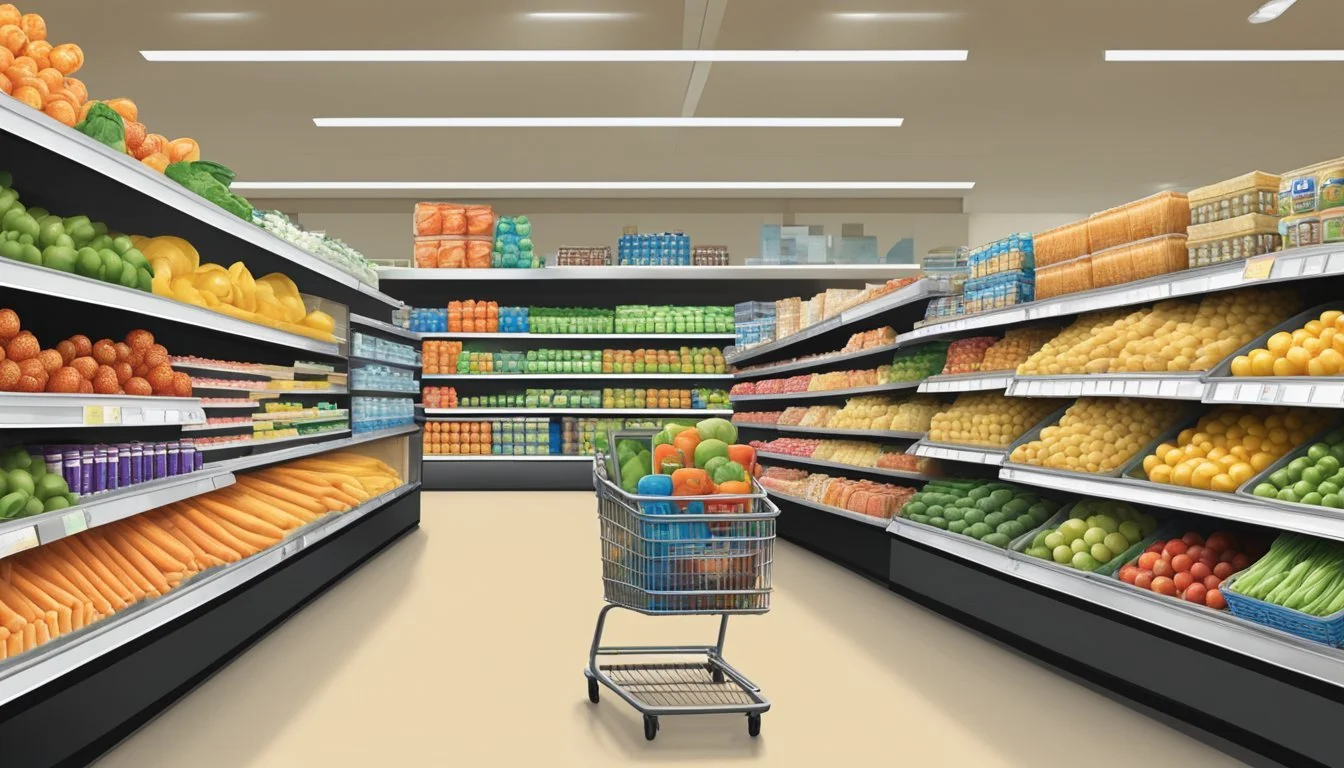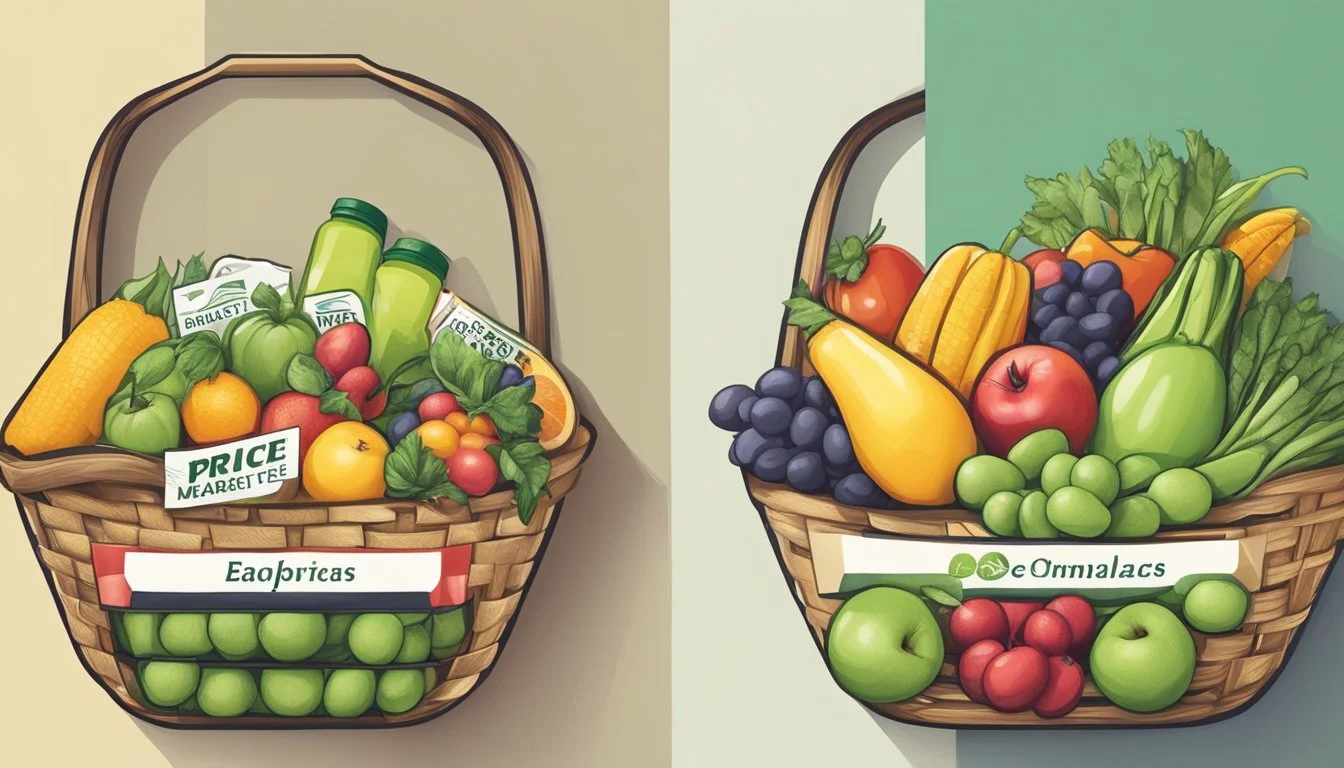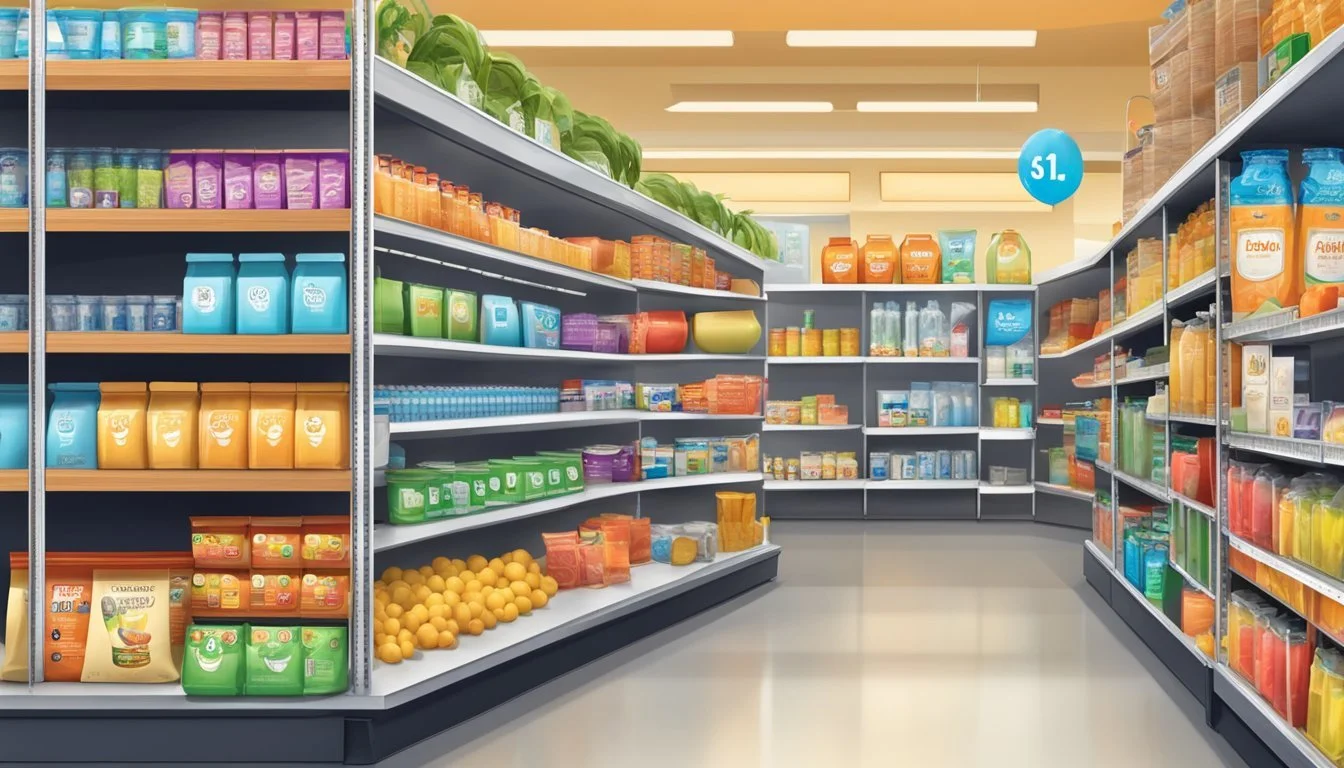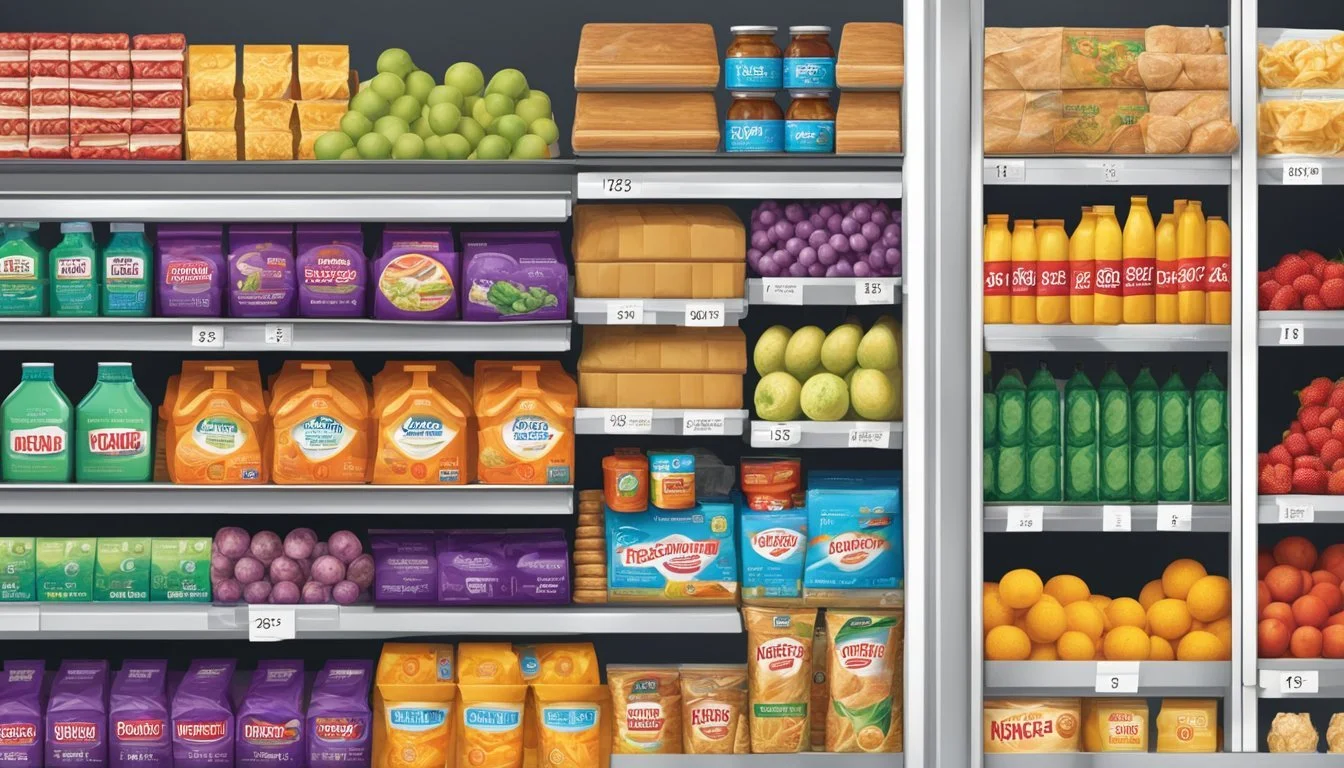Is Target Cheaper Than Demoulas Market Basket?
A Price Comparison Analysis
Target and Demoulas Market Basket are two popular retail chains that attract cost-conscious shoppers. Many consumers wonder which store offers better value for their hard-earned dollars. While Target is known for its trendy merchandise and frequent sales, Demoulas Market Basket consistently provides lower prices across its grocery offerings.
A 2022 study by consumer data firm Dunnhuby compared over 60 grocery chains, focusing on affordability and other factors like item quality. Market Basket stood out for its ability to keep prices low, even competing with discount giants like Aldi and Walmart. This pricing strategy allows families to save significantly on their grocery bills.
Market Basket's commitment to low prices stems from its efficient operations and slim profit margins, typically around 2-3%. The company compensates for these tight margins through high sales volume. For budget-conscious consumers, shopping at Market Basket could result in substantial savings over time compared to other retailers, including Target.
Company Histories and Business Models
Demoulas Market Basket and Target represent two distinct approaches to retail, each with its own unique heritage and business philosophy. Their divergent paths have shaped their current market positions and customer relationships.
The Heritage of Demoulas Market Basket
Demoulas Market Basket traces its roots to 1917 when Greek immigrants Athanasios and Efrosini Demoulas opened a small grocery store in Lowell, Massachusetts. The business thrived during the Great Depression, expanding under the leadership of their sons.
In 1954, George Demoulas acquired the company from his parents. The chain grew rapidly, becoming known for its low prices and employee-centric culture.
The company faced a leadership crisis in 2014 when Arthur T. Demoulas was ousted as CEO, sparking employee protests and customer boycotts. His eventual reinstatement solidified Market Basket's reputation for valuing both workers and shoppers.
Target's Retail Evolution
Target's history began in 1902 with the Goodfellow Dry Goods store in Minneapolis. The company rebranded as Target in 1962, focusing on affordable, stylish merchandise.
Target pioneered the concept of designer collaborations in mass retail, launching partnerships with high-end brands in the 1990s. This strategy helped differentiate it from competitors.
The company expanded aggressively in the 2000s, adding grocery sections to many stores. In recent years, Target has invested heavily in e-commerce and same-day delivery services to compete with online retailers.
Target's business model emphasizes a balance between value and style, aiming to offer trendy products at competitive prices.
Pricing Strategies and Customer Perception
Retailers employ various pricing strategies to attract customers and build loyalty. The perception of value goes beyond just low prices, encompassing factors like quality and service.
Keeping Prices Low and Quality High
Target and Demoulas Market Basket both strive to offer competitive prices. Market Basket is known for its "More For Your Dollar" slogan, emphasizing value through low prices on groceries and household items. The chain keeps overhead costs down by maintaining a no-frills store environment.
Target uses a "expect more, pay less" approach. The retailer offers affordable private-label brands alongside name-brand products. Target's REDcard provides a 5% discount on purchases, further lowering prices for cardholders.
Both stores balance low prices with product quality. Market Basket focuses on fresh produce and meats at bargain prices. Target curates its product selection to offer stylish yet affordable options.
Customer Service and Experience
Market Basket prides itself on old-fashioned values and personalized service. The company maintains strong connections with local communities. Employees often develop long-term relationships with regular customers.
Target aims to create a pleasant shopping experience through clean, well-organized stores. The retailer invests in technology like mobile apps and in-store pickup to enhance convenience.
Both chains train staff to be helpful and knowledgeable. Market Basket emphasizes friendly, attentive service. Target focuses on efficiency and product knowledge to assist customers quickly.
Market Basket's Leadership and Company Culture
Market Basket's leadership and company culture have been shaped by family dynamics and a strong focus on employee and customer satisfaction. The company's history is marked by a notable family feud and a unique management approach that fostered loyalty among staff and shoppers alike.
Arthur T. Demoulas's Stewardship
Arthur T. Demoulas, known as "Artie T," led Market Basket with a people-first philosophy. Under his leadership, the company prioritized employee well-being through competitive wages, profit-sharing programs, and internal promotions. This approach cultivated a dedicated workforce and contributed to the company's financial success. Artie T's management style emphasized personal connections, with the CEO often visiting stores and interacting directly with staff and customers. His leadership fostered a family-like atmosphere within the company, earning him widespread respect and loyalty from employees at all levels.
The Impact of Family Feud
The Demoulas family feud significantly impacted Market Basket's operations and public image. The conflict between Arthur T. and his cousin Arthur S. Demoulas culminated in a boardroom coup in 2014, leading to Arthur T's ouster as CEO. This decision sparked unprecedented employee protests and customer boycotts. Workers and managers staged walkouts, while customers supported the "We Are Market Basket" movement. The six-week standoff demonstrated the strong bond between leadership, employees, and customers. Ultimately, Arthur T. regained control of the company, reinforcing Market Basket's unique corporate culture and solidifying its reputation as a worker-friendly business.
Product Selection and Store Layout
Target and Demoulas Market Basket offer distinct shopping experiences with varying product selections and store layouts. Each retailer caters to different customer needs through their inventory choices and aisle organization.
Inventory: National Brands Vs. Store Brands
Target emphasizes a mix of national brands and its own private labels, particularly in groceries and household items. The retailer's store brands, like Good & Gather for food and Up & Up for essentials, provide budget-friendly alternatives. Market Basket, in contrast, focuses more heavily on national brands across its product range.
Market Basket's produce section is known for its freshness and competitive pricing. The store's meat department offers a wide selection of cuts, often at lower prices than competitors. Target's fresh food offerings are typically more limited, with a smaller produce section and fewer meat options.
Navigating the Aisles
Market Basket stores generally have a traditional grocery layout with clearly defined departments. Produce, meat, and dairy sections are usually located around the store's perimeter. The central aisles house shelf-stable goods, including a vast array of national brand groceries.
Target's layout often integrates groceries with other departments. Fresh produce and refrigerated items are typically found in one area, while dry goods may be spread across multiple aisles. This can make grocery shopping less straightforward for customers primarily seeking food items.
Target stores frequently feature self-checkout lanes, which can speed up the purchasing process for customers with fewer items. Market Basket tends to rely more on traditional checkout counters, emphasizing personal service.
Locations and Regional Influence
Target and Demoulas Market Basket have vastly different geographical footprints. Their contrasting approaches to expansion reflect unique business strategies and target markets.
New England's Supermarket Landscape
Demoulas Market Basket dominates the New England grocery scene. The chain operates 88 stores across Massachusetts, New Hampshire, Maine, and Rhode Island. Market Basket's strong regional focus has cultivated a loyal customer base in southern New England.
Boston and its surrounding areas form a key market for the supermarket chain. Market Basket's dense store network in this region allows it to cater effectively to local preferences and shopping habits.
The company's commitment to its New England roots has helped it maintain a strong regional identity. This localized approach contrasts sharply with national chains, giving Market Basket a unique position in the area's competitive supermarket landscape.
Target's National Presence
Target boasts a much broader geographical reach than Market Basket. The retail giant operates stores nationwide, with locations in all 50 states and the District of Columbia.
Target's expansion strategy focuses on urban, suburban, and rural markets across the country. This wide-ranging approach allows the chain to serve diverse communities and tap into various regional markets.
In New England, Target maintains a presence but faces stiff competition from well-established local chains like Market Basket. The company's national brand recognition and diverse product offerings help it compete in this challenging market.
Target's nationwide network includes over 1,800 stores, dwarfing Market Basket's regional footprint. This expansive presence gives Target significant economies of scale and purchasing power.
Fiscal Management and Economic Impact
Market Basket and Target employ distinct strategies for managing costs and responding to economic pressures. These approaches impact their pricing, profitability, and overall market competitiveness.
Profit Margins and Operating Costs
Market Basket maintains remarkably low prices while achieving solid profits. The company operates debt-free and keeps operating costs down through efficient practices. Their no-frills stores and limited advertising help reduce expenses. Market Basket's profit-sharing plan motivates employees and boosts productivity.
Target takes a different approach, investing more in store aesthetics and marketing. This results in higher operating costs but allows them to attract a different customer base. Target's larger scale provides some advantages in negotiating with suppliers.
Both companies closely monitor their budgets to maintain healthy profit margins in a competitive industry.
Responding to Market Pressures
Market Basket has shown resilience during economic downturns and inflationary periods. Their everyday low pricing strategy helps shield customers from sudden price hikes. The company's financial stability allows them to absorb some cost increases without immediately passing them on to shoppers.
Target uses a mix of strategies to respond to market pressures. They offer a tiered pricing structure with their own budget-friendly brands alongside premium options. During inflationary periods, Target may adjust prices more frequently than Market Basket.
Both retailers must balance maintaining affordable prices with ensuring profitability as economic conditions fluctuate. Their responses to these pressures directly impact customers' wallets and shopping choices.
Consumer Behavior and Shopper Experience
Target and Demoulas Market Basket attract distinct consumer segments based on their unique offerings and pricing strategies. Shoppers make choices between these retailers driven by factors like affordability, product selection, and overall experience.
Why Shoppers Choose Market Basket or Target
Market Basket appeals to budget-conscious consumers seeking low prices on groceries and household essentials. Its no-frills approach and focus on everyday low prices resonate with shoppers looking to stretch their dollar.
Target, on the other hand, attracts a slightly more affluent demographic. Shoppers choose Target for its curated selection of trendy yet affordable home goods, clothing, and electronics alongside groceries. The "expect more, pay less" promise draws customers seeking style on a budget.
Product quality also factors into decisions. Market Basket emphasizes fresh produce and meats, while Target highlights its exclusive brands and designer collaborations.
Loyalty and Reputation among Consumers
Market Basket has cultivated a fiercely loyal following, particularly in New England. Shoppers appreciate the company's employee-friendly policies and community involvement. The 2014 employee protest and customer boycott demonstrated deep consumer loyalty.
Target has built a reputation as an "upscale discounter" with a devoted fan base. Shoppers affectionately call it "Tar-zhay," highlighting its perceived trendiness. Target's REDcard loyalty program, offering 5% discounts, further cements customer relationships.
Both retailers maintain strong reputations for affordability. Market Basket is known for rock-bottom prices, while Target balances affordability with style. Consumer perception of getting "more for your dollar" drives repeat visits and customer satisfaction at both chains.
Comparative Analysis of Pricing
Target and Demoulas Market Basket employ distinct pricing strategies, each aiming to attract budget-conscious shoppers. Their approaches reflect differing business models and customer priorities.
Price Comparison Amidst Inflation
Demoulas Market Basket consistently offers lower prices on many essential items compared to Target. A basket of common groceries at Market Basket often costs 10-15% less than at Target. Market Basket's pricing strategy focuses on everyday low prices across the board.
Target, while generally pricier, provides competitive rates on select items, particularly in their private label brands. The retailer's pricing fluctuates more, with frequent sales and promotions. This dynamic pricing can sometimes result in better deals on specific products.
Both chains have responded to recent inflationary pressures. Market Basket has maintained its commitment to low prices, absorbing some cost increases. Target has adjusted prices more noticeably but emphasizes value through its loyalty program and credit card discounts.
Balancing Quality with Affordability
Market Basket's approach prioritizes consistently low prices on a wide range of products. This strategy appeals to cost-conscious shoppers seeking overall savings on their grocery bills. The chain's no-frills stores and efficient operations contribute to these lower prices.
Target balances affordability with a focus on product quality and shopping experience. Their private label brands, like Good & Gather, offer competitive prices while maintaining higher perceived quality. Target's broader merchandise selection, including home goods and electronics, allows for loss-leader pricing on some grocery items.
Both retailers stock national brands, but Market Basket often prices these items lower. Target compensates with a more diverse selection of specialty and organic products, appealing to shoppers willing to pay more for these options.
Future Trends and Industry Predictions
The retail landscape is evolving rapidly, driven by changing consumer preferences and technological advancements. Grocery chains like Target and Market Basket must adapt to stay relevant and competitive in the coming years.
Staying Competitive in a Changing Market
To remain competitive, Target and Market Basket will need to focus on innovation and customer experience. Researchers predict a shift towards more personalized shopping experiences, with retailers leveraging data analytics to tailor offers and promotions to individual consumers.
Savvy consumers increasingly prioritize value, quality, and convenience. This trend may benefit Market Basket, known for its low prices and loyal customer base. Target, however, could capitalize on its broader product range and brand partnerships.
Both chains will likely expand their online presence and delivery options to meet growing demand for e-commerce. Amazon's continued growth in the grocery sector will push traditional retailers to enhance their digital capabilities.
The Role of Technology in Retail
Technology will play a crucial role in shaping the future of grocery retail. Self-checkout systems and cashier-less stores may become more prevalent, improving efficiency and reducing labor costs.
Artificial intelligence and machine learning will optimize inventory management and supply chain operations. These technologies can help predict consumer demand, reduce waste, and ensure product availability.
Mobile apps and smart carts could enhance the in-store experience, providing personalized recommendations and streamlining the shopping process. Augmented reality might allow customers to virtually try products or access nutritional information easily.
Blockchain technology may improve food traceability and safety, addressing growing consumer concerns about product origins and quality.
Conclusion
Determining a clear winner between Target and Demoulas Market Basket is challenging. Both retailers excel in different areas.
Market Basket stands out for its competitive pricing on groceries and household essentials. The chain's family values and focus on customer satisfaction have cultivated a loyal following.
Target offers a wider range of products beyond groceries, including clothing, electronics, and home goods. Its trendy image and store designs appeal to many shoppers.
Profit margins likely differ between the two. Market Basket's no-frills approach may allow for lower prices, while Target's diverse offerings could contribute to higher overall profits.
Quality comparisons vary by product category. Market Basket's groceries are well-regarded, while Target's exclusive brands span multiple departments.
Ultimately, the "cheaper" option depends on individual shopping needs. For pure grocery savings, Market Basket often comes out ahead. For one-stop shopping convenience, Target may be preferable.
Both chains have carved out successful niches in the retail landscape. Shoppers benefit from the competition and distinct experiences each retailer provides.










